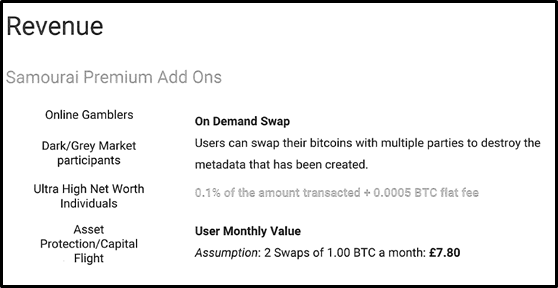
Last week the U.S. Attorney's Office for the Southern District of New York announced the arrest of Keonne Rodriguez and William Lonergan Hill, founders of Samourai Wallet, a mobile cryptocurrency mixing service. The pair were charged with conspiracy to commit money laundering and conspiracy to operate an unlicensed money-transmitting business.
Rodriguez, 35, and Hill, 65, were apprehended on Wednesday, April 24. Hill was arrested in Portugal and faces extradition to the U.S. to face trial. Rodriguez pleaded not guilty following his appearance in the Southern District of New York on April 29.
The court agreed to his release on a $1 million bond, with strict conditions including home confinement in Harmony, Pennsylvania, mandatory location monitoring, and restrictions on his involvement with Samourai Wallet and any direct or indirect cryptocurrency transactions without court approval. Rodriguez is due back in court on May 14.
Launched in 2015, Samourai Wallet is a mobile Bitcoin wallet emphasizing privacy and security. With its motto, "Keep your transactions private, your identity masked, and your funds secure," the wallet offered features like Whirlpool and Ricochet to enhance user anonymity by mixing transactions and adding extra transaction layers, complicating the tracking process.
According to the indictment, Rodriguez and Hill developed and operated an unlicensed money-transmitting business that facilitated over $2 billion (80,000 BTC) in unlawful transactions and laundered more than $100 million in criminal proceeds from 2015 to February 2024. The indictment claims that Samourai's mixing features, Whirlpool and Ricochet, have played a central role in the money laundering scheme since their launch in 2019 and 2017, respectively.
Furthermore, Rodriguez and Hill allegedly collected an estimated $4.5 million in fees for processing transactions through Whirlpool ($3.4 million) and Ricochet ($1.1 million). Prosecutors believe the laundered funds originated from various sources, including illegal dark web markets, such as Silk Road and Hydra Market, and also from hacking schemes and decentralized finance exploits.
Prosecutors also claim that both founders were aware of the criminal nature of many Samourai users and "operated Twitter accounts that encouraged and openly invited users to launder criminal proceeds through Samourai." In a private message in August 2020, Hill, using the Twitter handle "Samourai Dev," acknowledged that Samourai Wallet caters to users involved in "black/grey markets" seeking to avoid financial regulations and safeguards.

Public posts from Samourai's X account, attributed to Rodriguez, also come to show that he was aware that criminals used the service.

Rodriguez and Hill allegedly possessed and distributed marketing materials explicitly acknowledging Samourai's appeal to criminals. These materials reportedly discussed how Samourai's customer base was intended to include individuals engaged in illegal activities, such as "Dark/Grey Market participants" and those involved in "Restricted Markets." Samourai's marketing materials also reportedly promoted its services as a "Premium Privacy Service" specifically designed for transactions involving the proceeds of illegal goods and services.

Samourai's website, hosted in Iceland, was seized by law enforcement, and its mobile app will be removed from the Google Play Store in the U.S.
Crypto markets experienced some turbulence following the news, with Bitcoin, Ethereum, and several popular altcoins recording a slight dip, according to CoinGecko data. This downturn was also influenced by escalating tensions in the Middle East and volatility following the recent halving event.
Rodriguez and Hill's arrest is just another development in the U.S. Department of Justice's (DOJ) ongoing crackdown on crypto-mixing services. The DOJ's Southern District of New York is currently preparing for its upcoming trial against Roman Storm, the founder and developer of Tornado Cash, which allegedly facilitated the laundering of billions of dollars in cryptocurrency.
In March, the DOJ's Washington, D.C. unit convicted Roman Sterlingov, who operated Bitcoin Fog, the longest-running cryptocurrency mixing service, on charges of money laundering conspiracy, money laundering, operating an unlicensed money transmitting business, and violating D.C. Money Transmitters Act regulations. Sterlingov's lawyers announced their intent to appeal.

